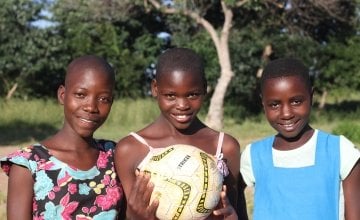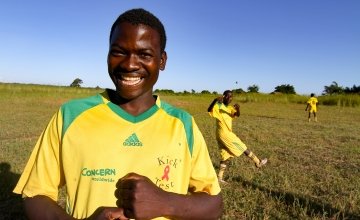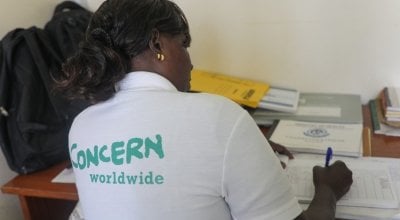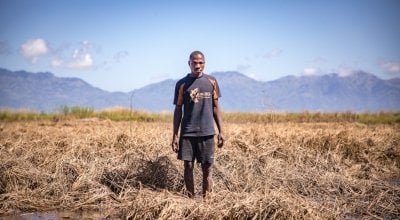
Read our 2023 annual report

Knowledge Hub
Starting conversations on sexual health in Malawi

Imagine you are a young person in an isolated and conservative rural village. As you grow into adolescence, how do you learn about sexual health? Who do you turn to for family planning advice?
We’re working with communities in Malawi to make sure that young people have access to the support and services necessary to take care of their sexual and reproductive health.
Adolescence is a universally bewildering time. New feelings and changing bodies burst the comfortable bubble of childhood and wreak havoc. However, the normal confusion of these years can soon lead way to serious health risks if adolescents aren’t supported and informed on their sexual and reproductive health.
In Malawi’s Nkhotakota District, a lack of awareness and cultural barriers are blocking young people, particularly in hard to reach communities, from accessing sexual and reproductive health services. This is putting them at risk of teenage pregnancies, early marriages and sexually transmitted infections including HIV and AIDS. Last year, in Malawi as a whole, the number of people over 15-years-old living with HIV was almost 900,000.
Skilling up for sexual health
Our team is empowering young people to break cultural and logistical barriers by learning about sexual health in and with their own communities. In partnership with Grassroot Soccer South Africa, we’re using soccer (or football!) to educate, inspire and mobilise young people to actively participate in sexual health education activities.
Since 2013, the project has trained 70 coaches who have reached over 9,500 young people through the Skillz Malawi and Skillz Girl programmes. Skillz Girl – for girls only, as the name suggests – places more emphasis on sexuality and reproductive health, in addition to HIV prevention and life skills. However, both programmes have a healthy mix of soccer and education, and they are having far-reaching impacts.
Happy Kwenda, one of two coaches in Malengachanzi, underlines the impact of the programmes on participants and coaches alike.
“Before training, we used to have multiple partners but not anymore. We are agents of change and role models in our community now, and we’ve noticed that families that had malnourished children due to frequent births are now practising child spacing.’’

Tacking isolation with mobile tech
A significant barrier to accessing health services in Malawi is the remote nature of villages and the lack of adequate transport. Isolation can mean that health problems, particularly reproductive issues, can grow beyond the watchful eye of a doctor.
In this case, the wonders of technology can mean the difference between life and death. Chipatala cha pa foni (free hotline) is a mobile phone health initiative supported by Concern that allows women of child-bearing age to be assisted over the phone by healthcare professionals.
Dyna Kachinga, a 27-year-old woman from Mtosa in Mwadzama, called Chipatala cha pa foni when she was experiencing problems like high blood pressure and vomiting during her pregnancy.
After describing her symptoms, the hotline team advised her that she should seek help immediately. Dyna received treatment at the hospital and she later gave birth, by caesarean section, to a healthy baby boy named Benjamin. After Benjamin’s birth, she was supported by phone with advice on breastfeeding, nutrition, hygiene and family planning methods.
Contending with traditional beliefs
For a young mum like Dyna, the hotline meant she could receive advice and support from her own home. She sought care when necessary but avoided having to travel long distances – while pregnant or with a young baby – for advice that could be given over the phone.
However, the service is still contending with challenges from some quarters of the community who are suspicious of technology. Volunteers on the project have even reported that some associate the service with Satanism. Young people like Dyna, who have used the service, are trying to counter such misconceptions by spreading the word about their experiences.
Read more about our work in Malawi





